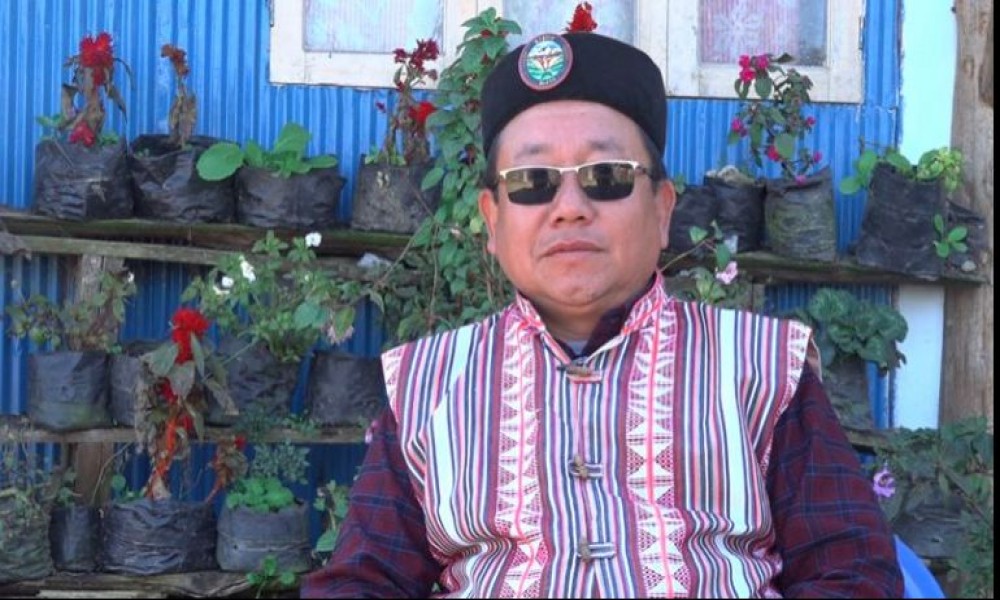SUMI DARLAMI
Local governments have been providing relief to poor people in Nepal, who have lost their income sources due to the extended nationwide lockdown enforced by the government to minimize the spread of the COVID-19 pandemic.
However, some poor indigenous peoples, who are considered to be highly marginalized, have been denied this assistance. Some local governments have adopted a discriminatory policy to prevent highly marginalized Adivasi Janajati people from applying for COVID-19 relief because 'they are already receiving allowance from the government'.
The government has put 10 indigenous peoples in the category of highly marginalized communities. The list includes Kusunda, Bankariya, Raute, Surel, Hayu, Raji, Kisan, Lepcha, Meche, Kushbadiya.
Most people belonging to these highly marginalized communities are extremely poor, and have been struggling to make ends meet. In order to support their livelihood, the government has been providing social security allowance to them. However, this very government scheme is being used by some local governments to deny the COVID-19 relief to vulnerable indigenous peoples.
Some poor Indigenous peoples, who are considered to be highly marginalized, have been denied this assistance. Some local governments have adopted a discriminatory policy to prevent highly marginalized indigenous peoples from applying for COVID-19 relief because 'they are already receiving allowance from the government.
Lepcha people in Suryodaya municipality of Ilam district and Kusunda people in Tulasipur municipality of Dang district have been unable to access the COVID-19 relief because they are in the government's category of highly marginalized people, and are entitled to social security allowance.
This policy is not only discriminatory but also unfair because most indigenous peoples belonging to the highly marginalized category are among the ones worst affected by the lockdown. They have lost their income sources, and monthly social security allowance they get is not sufficient for them to live through this crisis.
Indigenous peoples belonging to the highly marginalized category receive a monthly social security allowance of Rs 3,000. However little, this amount may supplement their incomes in normal times. But during a crisis like this, when it would be virtually impossible to earn daily wages, this little amount is inadequate.
Denying the COVID-19 relief to vulnerable indigenous peoples seems to be an arbitrary policy adopted by only some local governments. Other local governments have not discriminated against indigenous peoples just because they are entitled to social security allowance.
Indigenous peoples belonging to the highly marginalized category receive a monthly social security allowance of Rs 3,000. However little, this amount may supplement their incomes in normal times. But during a crisis like this, when it would be virtually impossible to earn daily wages, this little amount is inadequate.
For example, Kisan is one of the indigenous peoples categorized by the government as a highly marginalized community. But they have not been denied the COVID-19 relief in Mechinagar municipality of Jhapa district. Kisan Community Club's President Bhim Kisan told us that they are receiving rice grains, lentil and edible oil.
Jhapa is also home to another highly marginalized Adivasi Janjati people: Meche. Like Kisan, Meche people have also been receiving relief from the municipality. Meche Society's President Ranjit Meche says: "There might be some political discrimination in relief distribution, but we have not faced discrimination just because we are Meche."
However, even those indigenous people who have been denied the COVID-19 relief have not spoken up against this form of discrimination.
Lapcha Sejum Thim's President Bir Bahadur Lapcha, who is also a member of the Executive Council of Suryodaya municipality, says: "Although Lapcha people are not receiving relief, the municipality has ensured that they get their due allowance regularly."
However, he says all Lapcha people have not been able to receive social security allowance because the municipality is facing a cash crunch.









